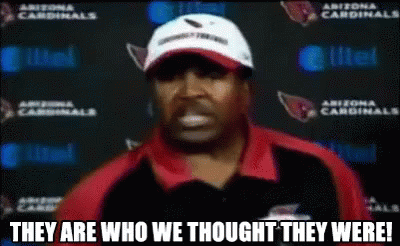I’m generally not an aggressive or easily agitated kinda guy. It usually takes quite a bit to stir me up, which serves me well in most cases. I can normally diffuse perceived tension with an “it’s all good” to let the offending person know I acknowledge their offense yet I’m not sweating it. Most exchanges can be handled in this way.
But you know how these things work. There are always individuals who enjoy pushing boundaries and buttons, with the socially awkward, culturally unacceptable statements—not knowing where to draw the line and usually leading to less than desirable outcomes.
Before I ever knew how to diagnose the nature of these “misunderstandings”, I internalized the frustration, often working with a chip on my shoulder. I knew people said and did things that at times were racially driven and I knew that they stung of something more than just playful repartee. It was the sort of encroachment you see when an unknowing soul makes the wrong hand gesture in gangland, or when a co-worker calls you “Sista Girl” with a snap because they heard it on a movie…
What is Cultural Misunderstanding
Psychology Today explains cultural misunderstanding:
A cultural misunderstanding occurs when something–a word, gesture, object, social context, almost anything you can think of–has different meanings in two cultures. Sometimes the misunderstandings get resolved, sometimes they lead nowhere, and sometimes they can escalate to anything from love to war.
Simple misunderstandings are passable and can almost always be forgiven for simple ignorance. I usually don’t hold it against folks who make the small unknowing mistakes but then there are always the…
“Habitual Line-Steppers”
You’ll likely come into contact with people with superiority complexes (i.e. douchebags). These people can be close-minded and culturally inept. They point out others’ missteps and put spins on their own mistakes. Often times they do it to mask their ignorance of or indifference to important social cues (like that side-eye you give them every time they refer to you as “my brotha”).
Sarcasm is often the tool by which they accomplish this and they thrive off of attention. The attention gives them reason to be repeat offenders or as I call them, habitual line steppers. The worst part of it is that some of them think that the irreverent and culturally insensitive crap they say is funny. Which can lead to a phenomenon I like to call…
“The Blowup”
Let’s paint a picture shall we?
You’re being your normal productive self, listening to music, crossing things off your list, dodging falling bricks, you know, pretty much having a great morning. But like clockwork, the habitual line-stepper walks over and sarcastically says something about your “rap music” being loud (you’re listening to Bieber) and how it’s no wonder you guys never get any work done…
Before you know it, you’re assaulting him/her—with flawlessly delivered insults—an ether-level verbal thrashing. Then something hits you. You look around. Everybody’s staring at you. You’re the angry black man, Jamal. You’ve fallen into the trap. You’d already been typecast for this movie, and what you thought would be your breakout performance just became another cliché role. And all you keep hearing is Dennis Green’s voice yelling “the blacks are who we thought they were!”—okay so he didn’t say those exact words, but you get what I’m saying…

Realizing, statistics aren’t necessarily in your favor, you decide to adjust your tone and put the office voice back on—as you’re moonwalking your way back to employment. You slide in a “You know what? It’s all good”, and you sit back down, saving what’s left for a Facebook/Twitter rant.
What I’ve Learned
There is no handbook or amount of training that can teach you to be culturally adept nor is there a guide that can prepare you for culturally inappropriate comments from others. There is however the idea of mutual respect and that developing a fundamental understanding of our peers, their personalities, and their culture can lead to healthy interpersonal relationships. I’ve learned that I can’t expect people to respect my culture if I don’t respect it and create teaching moments from instances where I’ve been either offended or forced out of my character. It doesn’t have to be hostile or pointed but it should always be informative.
“Misunderstandings occur in all communication, even between people from the same cultural and linguistic background.” We can’t expect to get it right all of the time but what we can do is learn from our experiences and respect the differences of others while not compromising on our own.





Leave a Reply